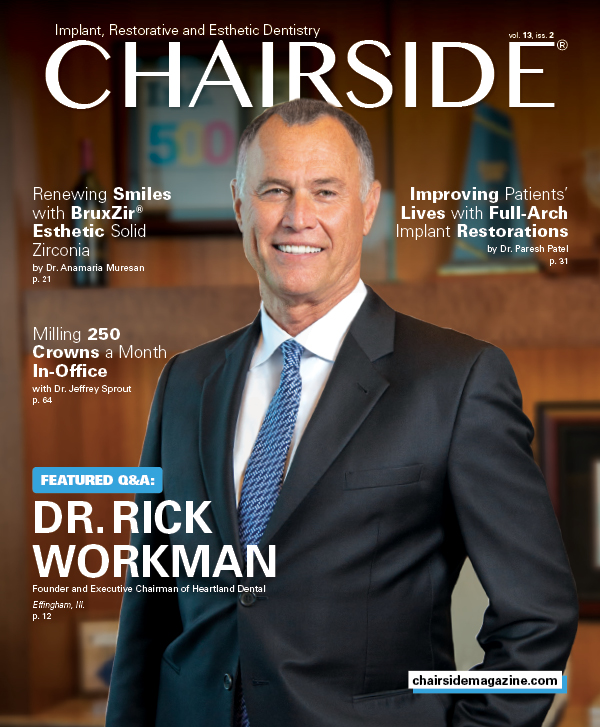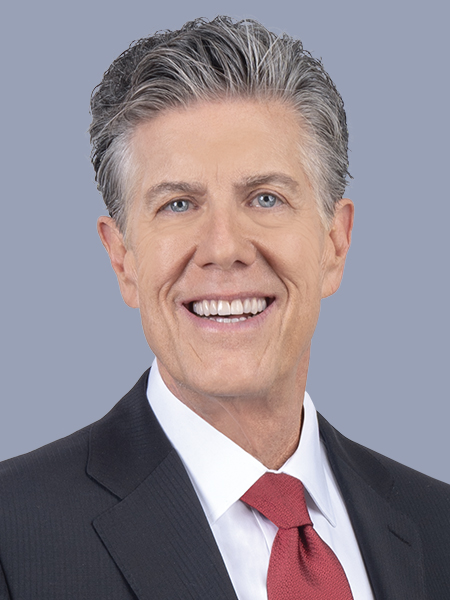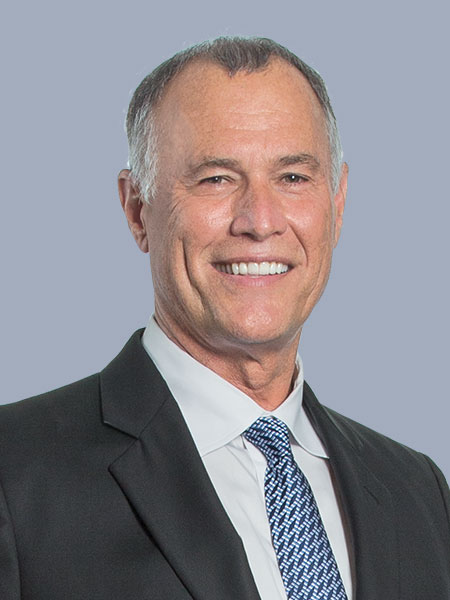Interview with Rick Workman, DMD
Dr. Rick Workman is the founder and executive chairman of Heartland Dental, a dental support organization (DSO) based in Effingham, Illinois, that supports approximately 870 offices and 1,400 dentists nationwide. In this interview, Dr. Workman discusses the benefits of being a Heartland Dental-affiliated dentist, the necessity of nonclinical skills in a dentist’s practice, and the future of the DSO industry.
DR. NEIL PARK: You’ve had a very unusual dental career. Tell me how you got started in practice.
DR. RICK WORKMAN: I graduated from Southern Illinois University in 1980, and I couldn’t find a job that would guarantee me $25,000 a year. I had two major goals: I didn’t want to move home at age 25, and I didn’t want to work on my family’s farm in downstate Illinois — though I was willing to work there if that prevented me from having to move home. And there was an office in a basement behind the Effingham hospital, which had been a dental office for two or three different dentists early in their careers. It was a two-chair facility with $325-a-month rent. I borrowed $33,000 from my parents and grandparents, and I took a chance. It worked out well.
NP: I understand that you opened a second office in a very short period of time. How did you manage that?
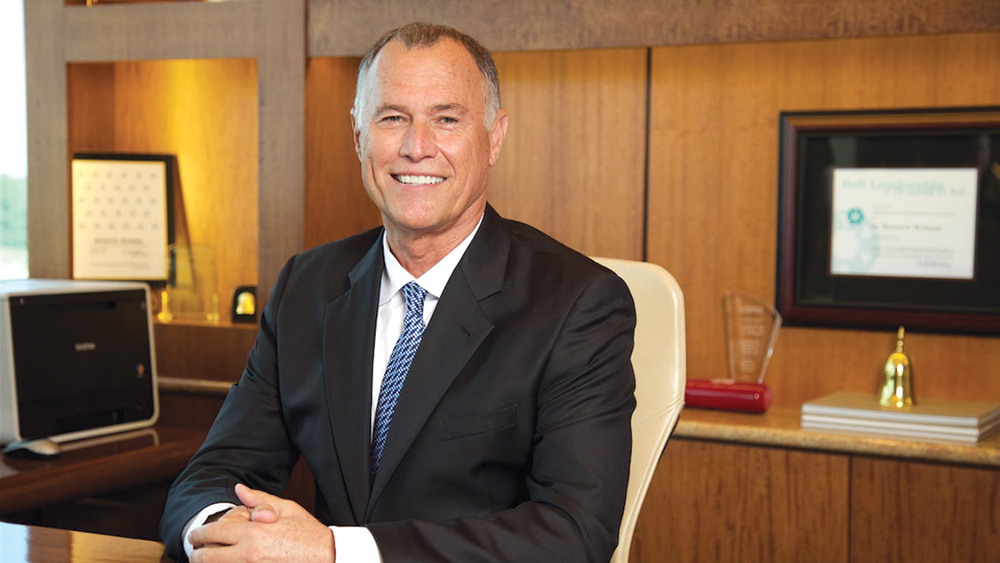
Dr. Rick Workman is the founder and executive chairman of Heartland Dental, which provides support to approximately 870 offices and 1,400 dentists nationwide.
RW: I was getting a lot of patients at my Effingham office. I didn’t do any marketing at all, because back then good dentists didn’t have to do marketing. And there were a lot of patients who were driving 25 miles to my office from Newton, Illinois, which was in a county with about 8,000 people — I think there was only one dentist in the entire town. One of those patients asked, “Why don’t you open up an office here in Newton?” I was skeptical because it would cost about $100,000 to buy a building and the equipment — and this was back in 1981, when the prime rate was 21 percent. I borrowed the money for this office from a group of Newton civic leaders who wanted a dentist in their community. They allowed me to borrow all of the money I needed at 10 percent interest — which was half of the prime rate at the time — and I was given tremendous leeway in terms of when I could start making payments. The Newton office opened in November 1981, and I hired my first associate the following summer. However, I found that there was not enough work for both of us, so I opened my third office in Louisville, Illinois, a town with about 1,700 people. So all of a sudden, we had three offices and two doctors, and away we went.
NP: Now you manage 870 offices and about 1,400 dentists — how did you get to this point?
RW: I was highly motivated. I basically worked 50 hours a week chairside for the next 15 years, and I also put in 25–30 hours a week at night and on weekends, working on the business and trying to figure out the things I needed to know. I learned a lot through direct experience of the challenges and opportunities that dentists face. I brought in many doctors along the way and directly observed how these dentists did things that were similar to what I did when I got out of dental school, before I figured out that there are sometimes smarter and better ways to do those things. If you think about it, there’s a gap between what a doctor would expect to know coming out of dental school and what a highly successful dentist would do. They’re looking at the world differently, and they’re able to do things differently. What we strive to emphasize is that we at Heartland Dental understand what makes a highly successful dentist. We have a lot of them in our ranks. They’ve helped us a lot, and we can teach you what they know. And you can learn what they know in a couple years compared to spending 20 years learning those lessons on your own, beating your head against the wall like I did. I wouldn’t recommend doing what I did. I was 42 when I finally got married. I wouldn’t recommend working 80 hours a week for 17 years.
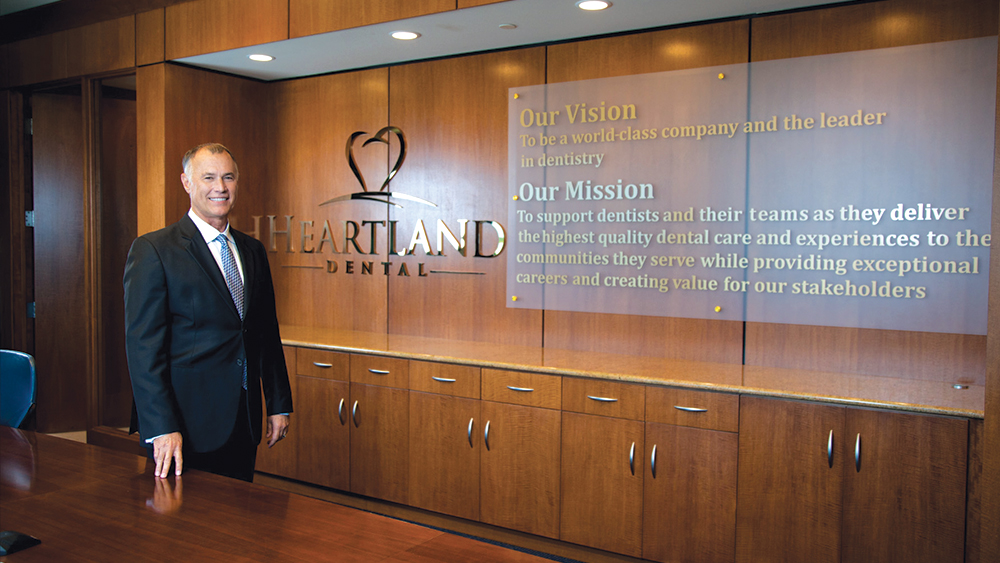
Through Heartland Dental, Dr. Workman seeks to make the path to success an easier one for dentists at any career stage.
NP: And these things that you’ve learned and you teach your team now, are they related to clinical procedures? Practice management procedures? Patient management?
RW: Yes, it’s all of that. Technical skills are important, but they’re about 20 percent of what you need in order to be highly successful. Technical skills and excellence are expected and assumed by your patients, and rightfully so. But a lot of dentists believe that all you need to know is technical skills — if you are just a good technical dentist, that’s all you need. Maybe that would have worked in the 1950s or ’60s, but I don’t think it works today. Personality and leadership skills are a very big leveraging factor in applying your technical skills.
NP: You often speak about leadership skills — how does that apply to dentists in practice?
RW: You’ll be happier and more successful if you can learn that leadership is about being authentic and open, as well as being clear with your team regarding what you’re trying to accomplish. We ask the doctors to write their specific clinical philosophy and post it in their office so that it’s accessible to their team. The greatest doctors that I know allow their teams to talk to patients about the practice’s clinical philosophy, and their hygienists, dental assistants and business assistants all want to adhere to the doctor’s clinical philosophy. The doctors can set their clinical philosophies. They always are in control. But when they empower their team to help patients comprehend the need for and importance of dental procedures, as well as understand or overcome patients’ objections, they will inevitably end up doing more of the kinds of dentistry that they wanted to do all along.
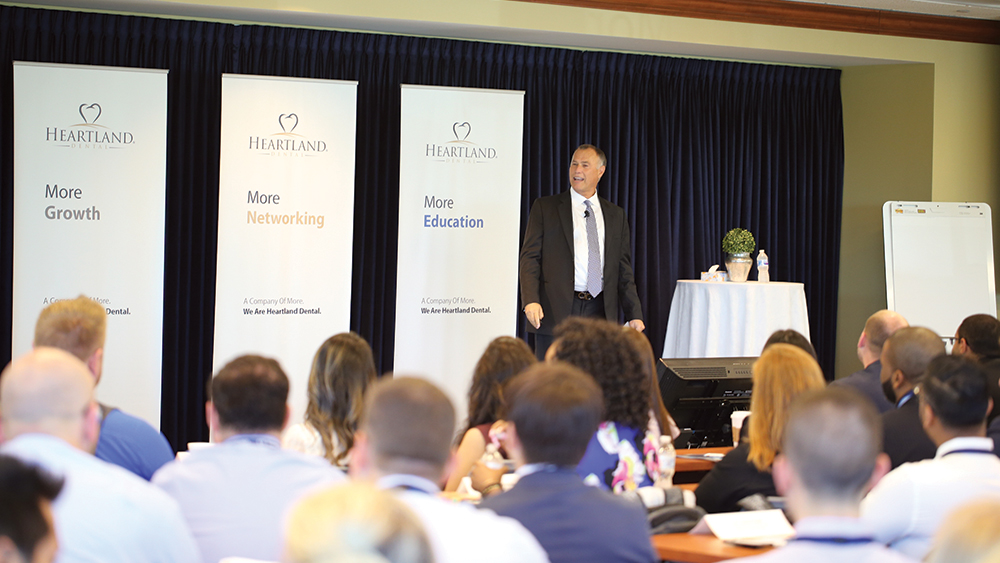
Heartland Dental provides nonclinical support services such as staffing, human resources, continuing education, marketing, administration and information technology.
NP: To achieve the kind of scale that you’ve achieved with Heartland Dental, you must have had a vision and mission to propel you forward. Can you tell us a little bit about that?
RW: We’ve always tried to get better every year. And eventually, we formalized our vision: to be a world-class company and the leader in dentistry. We may never achieve that vision, or it may take us 20–30 years. But our profession is evolving relatively closely to what we envisioned 20 years ago. I believe that is going to continue for a lot of different reasons. And we at Heartland Dental want to be at the table and participating in the discussion about the future of our industry. Today, we have 1,400 doctors who are like-minded and working very hard in alignment toward solving the problems that we almost all universally encounter — and this creates value for the dentist. We view the dentist as our customer: If we take care of them, set them up for success, and surround them with opportunities for success, then they take care of their patients, and that creates more demand for both new and experienced dentists. I recently interviewed a 40-year-old dentist with a $1 million practice who wants to affiliate with Heartland Dental. He said: “Honestly, I don’t need to spend 10–15 hours a week working on nonclinical stuff. If I affiliate with you, my understanding is that you’ll take care of the nonclinical areas, while I do the dentistry and have a nice life.” Even for a 60-year-old dentist with a $1.5 million business, it can be very difficult to find a way to monetize the practice. And younger dentists who have hundreds of thousands of dollars in debt are particularly in a difficult spot. Even if they were gifted a practice, it’s not likely that they know how to run it right away. So we think combining the support of Heartland Dental with the talents, resources and skills of dentists makes sense.
We view the dentist as our customer: If we take care of them, set them up for success, and surround them with opportunities for success, then they take care of their patients.
NP: Can you talk about the experience of being a dentist affiliated with Heartland Dental compared to being a solo practitioner? How is the day-to-day life different?
RW: First of all, we wish that every dentist had a perfect experience at Heartland Dental, but that doesn’t always happen. We are not in any way suggesting we’ve got it all figured out, but I think Heartland Dental’s track record has been pretty good. Whether you’re a young doctor or you’re much more experienced, I will advocate that you spend the resources you have on becoming the best dentist and leader that you can be. You do not need to become an expert in Google searches. You do not need to learn how to combat Yelp. Because no matter how good we could become in these areas, there are experts available who will always do a better job. You create the environment in your office that would cause people to say good things, and we’ll make sure those good things show up in your Google search.
NP: The challenges of dentistry are not unlike the challenges of running any small business: Besides delivering the product of clinical dentistry, you’re also in charge of HR, recruiting and insurance company relationships.
RW: Yes. And I think the gap is widening between what we are able to do with our scale and what the solo practitioner can accomplish. We’re working on solutions to problems that I believe 80 percent of dentists don’t even know exist. Do you realize that a major insurance company already owns over 100 dental practices? Or that another large DSO has already opened practices inside a large retail pharmacy outlet? There are lots of changes taking place. Even disintermediation of dentistry, where patients can just get dentistry done at home as a direct-to-consumer service, is on the horizon.
There are companies starting up that are the dental equivalent of Priceline.com. Now we can all as dentists say that this is bad and just not how it should be, but this is happening and it’s going to change dentistry. From our vantage point, if we can continue to deliver value to the dentist, they’ll want to come to us at Heartland Dental, and if we’re not delivering value to the dentist, they’re not going to come. Dentists are highly skilled people in a highly desirable marketplace. If they don’t want to come to Heartland Dental, it’s not like they’re going to turn into plumbers. They’re going to go to work for somebody else. So we have to earn and prove our value every day.
Dentists are highly skilled people in a highly desirable marketplace. If they don’t want to come to Heartland Dental, it’s not like they’re going to turn into plumbers. They’re going to go to work for somebody else. So we have to earn and prove our value every day.
NP: As far as career development for dentists, you do a lot of continuing education, and you develop their skills in different areas of dentistry, correct?
RW: Yes. One of the things that we think Heartland Dental is known for is its top-notch continuing education. We have incredible doctors who serve as mentors — they’ll help you, and you can learn directly from them. Dentists can benefit immensely by having direct access to our mentors.
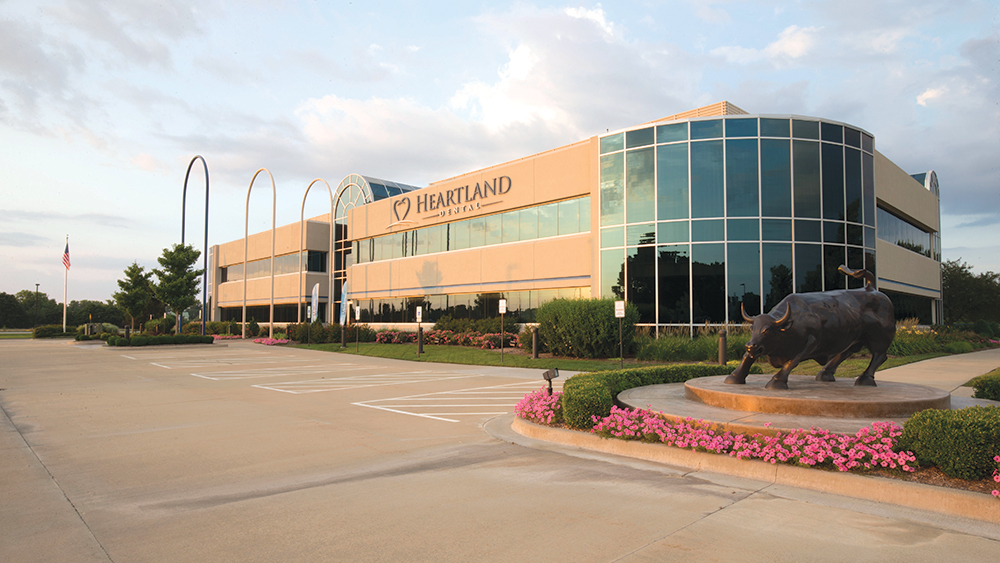
Heartland Dental’s headquarters are located in Effingham, Illinois.
NP: What’s your response to the criticism that, as dentists progress in their careers, they would actually net more income if they owned their own practices than if they were affiliated?
RW: You’re always better off to be highly successful by yourself — until you’re not. I think 5 or 10 percent of dentists — maybe it’s a little bit more — may always be better off on their own. There are some people who just have the gift — they have a clinical mind while being personable. There are also a lot of people we’ve met who have great practices yet could always use additional help. Investing into Heartland Dental is an option — we have about 450 doctors who have invested at least $250,000. In 10 years, that $250,000 has climbed to $1.58 million, so if you invested that amount 10 years ago and we secured you financing for that, you’re in a good spot in your career. I’m very convinced that doctors who come out of school and stay with Heartland Dental for the long term will have more economic security than 90–95 percent of all dentists, and they will do it with less risk because there’s geographic diversity. You’re investing in a mutual fund of well-run dental practices, and you’ll have less stress to deal with. On top of that, you won’t have to try to figure out how to become an expert in 16 different things that are not related to clinical dentistry.
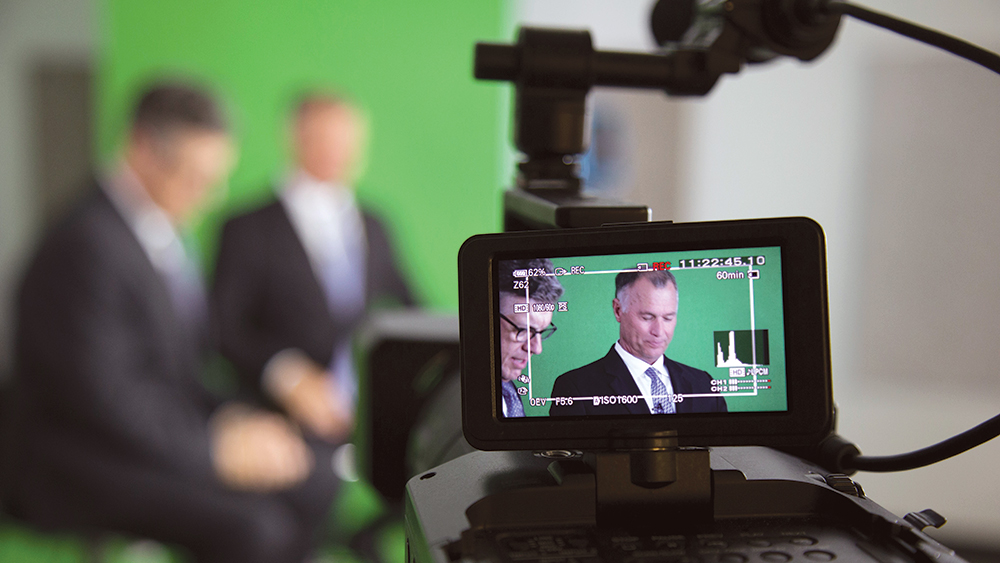
Dr. Workman being interviewed by Dr. Neil Park, vice president of clinical affairs at Glidewell Dental, at Heartland Dental’s headquarters.
NP: That’s really interesting. And there are several income streams, right? There’s the payment that the doctor receives based on his or her production, but there’s also additional income if he or she leads a profitable center, and then, as you said, if that dentist wishes to invest in the entire organization, there is another opportunity to earn.
RW: Yes. They’re not required to do that, but most people, when they decide to be here for the long term, have been around long enough to realize, “It’s probably a good thing that Heartland Dental’s growing and there seems to be a market out there.”
NP: You’ve had tremendous success anticipating and participating in dentistry trends. What do you see happening in the future? Will DSOs continue to grow, or will there be some big changes coming up?
RW: I’m 100 percent certain that the proliferation of DSOs is going to continue. Yes, it’s easy to find about a dozen “larger” ones, but I see about 100 DSOs that have some level of financing behind them, and with the number of offices they have ranging from three to 100, they’re going to continue to grow.
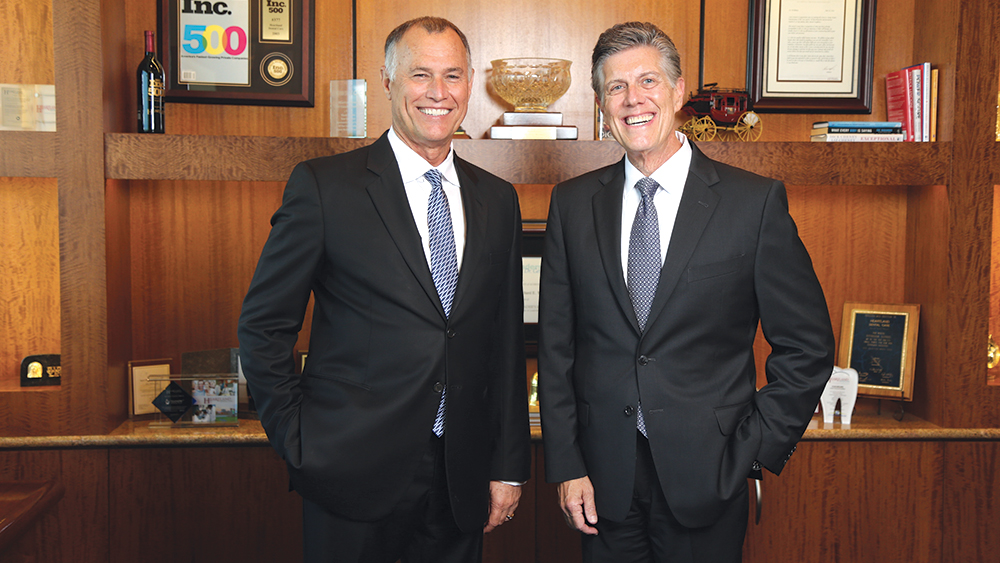
Dr. Workman with Dr. Park.
NP: Will they consolidate?
RW: It’s 100 percent inevitable there will be some level of consolidation. Time will tell in terms of how and when. But what’s not going to happen is a plateauing at this level, which we’ve been hearing about for years from those who I would suggest are not in the business. I look out there and wonder what will happen if the dentist is disintermediated on aligner services from different companies. What will happen if the patient is wrapped into some sort of a preapproved finance package and has already paid for a one-surface filling diagnosed by tele-dentistry? What will you bid when the patient comes in and asks, “How much do I have to pay you to do this?” People say, “Well, that’s wrong.” My response is: “I’m not here to discuss whether it’s wrong. I’m saying you asked me what I’m thinking.” And to my colleagues — some of whom I admit are anxious about whether Heartland Dental or other DSOs are growing — I’m saying, “I’m not sure we’re the biggest threat to the way of life of the dentist.” At a Heartland-supported practice, the dentists are in charge, and they’re meeting the patient, making the diagnosis and providing the care. We’re supporting them in what I’d call an extraordinarily traditional manner — just at a larger scale. But there are lots of ways that we, as dentists, could be fighting to not be disintermediated.
NP: Exactly. Thanks so much, Rick.
RW: Thank you.

